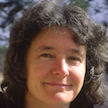Report Finds NASA Needs to Do More to Increase the Number of Women Space Researchers
Posted on May 25, 2022 | Comments 0
 A new report from the National Academies of Sciences, Engineering, and Medicine finds that the National Aeronautics and Space Administration must do more to increase the diversity of scientists who are selected to conduct research for the agency.
A new report from the National Academies of Sciences, Engineering, and Medicine finds that the National Aeronautics and Space Administration must do more to increase the diversity of scientists who are selected to conduct research for the agency.
NASA identifies critical scientific needs for a mission by releasing a public announcement of opportunity. Members of the scientific community can apply to these competitively selected opportunities, with teams led by a principal investigator (PI). The mission PI role requires a wide array of experience in the scientific research field, including mission design and operation knowledge and team leadership and management skills.
Between 2010 and 2019, only 28 percent of competed missions selected by NASA’s Science Mission Directorate had female principal investigators. Notably, two of SMD’s four divisions that fund competed missions — the astrophysics and earth science divisions — did not fund any female PI-led mission proposals during this period.
NASA needs long-term, sustained investments in effective activities that inspire, educate, train, and mentor female scientists to engage in NASA mission-related work and leadership, the report says.
 “Preparation for competed mission leadership starts early in a career, and pinch points in the space sciences career path occur as early as the high school and initial college levels,” said Frances Bagenal, assistant director for planetary sciences at the University of Colorado, Boulder and co-chair of the committee that produced the report. “Therefore, it is critical to examine the full pathway into earth and space sciences careers, and identify opportunities to help diverse groups of young scientists receive the education and experience they need to join the pool of potential proposal leadership teams.”
“Preparation for competed mission leadership starts early in a career, and pinch points in the space sciences career path occur as early as the high school and initial college levels,” said Frances Bagenal, assistant director for planetary sciences at the University of Colorado, Boulder and co-chair of the committee that produced the report. “Therefore, it is critical to examine the full pathway into earth and space sciences careers, and identify opportunities to help diverse groups of young scientists receive the education and experience they need to join the pool of potential proposal leadership teams.”
The full report, Advancing Diversity, Equity, Inclusion, and Accessibility in the Leadership of Competed Space Missions, may be downloaded here.
Filed Under: Research/Study








